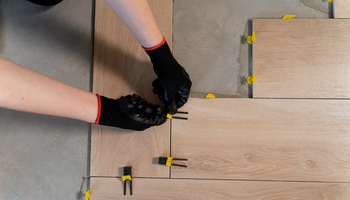Your Ultimate Guide to Planning a Successful Home Renovation Project

Planning is essential in a successful home renovation project. It is also necessary if you want to finish your project in the most efficient way possible.
Planning a home improvement project can be exciting yet overwhelming. Whether you are planning to renovate an area of the home or the entire house, the process requires numerous steps.
This article will provide a comprehensive guide to ensure you plan your project well and that your renovation process runs smoothly. Also, we will help you understand your home renovation needs and how to set a budget for the complete process.
Planning is crucial when embarking on a home renovation project. It gives a clear overview of what renovation entails and lets you see whether your goals are achievable. In addition, planning is essential when you want to bring your dream house to life. Knowing all the factors that may affect your project is part of planning, which is vital when renovating a new home.
Understanding Your Home Renovation Needs
Before you start renovating your home, a crucial step you should take is assessing your house needs and defining your goals and objectives.
First, assess the present conditions in your home to determine the places that need improvement. To hasten and make this easy, consider getting a professional to ascertain the type of renovation issues that you have.
Be sure whether you are renovating to increase functionality or upgrade aesthetics, such as in-house remodelling. This way, you can determine your renovation's scope, which is a good foundation for a successful home improvement project.
Also, be sure if you want the renovation project to influence your home for the long or short term. Do you want to sell your home soon, or are you renovating for enjoyment? These plans will significantly affect and influence your renovation choices and process.
In addition, there are some places you might not identify that they need renovation. Therefore, you must consult interior decorators, home engineers, and architects who can provide valuable insights into your renovation project.
Setting Your Renovation Budget
Setting a budget and allocating funds are all part of planning for home renovations. Interestingly, there are several ways to develop an adequate renovation budget. Below are some ways to set an adequate renovation budget:
Create a List
To develop a budget, you need to create an itemised list of all the renovations that need to be done, from the ones that are urgent and important to the ones that are not. After having a list of all the tasks required, you can create a table and add rows containing the materials and labour costs. You should not spend any more on each room than the value of that room as a percentage of your overall house value.
You have a table containing the task, materials, and labour costs; now, it is time to fix the costs for each process. It is advisable to overestimate the cost of materials and labour needed, especially if renovating a new home.

In addition, the costs of taxes, permits, and legal fees that may be required during the project must be considered. To better understand the cost you should allocate to materials and labour, you can research local suppliers and contractors to get the present quotes. Before renovating, you can request written quotations or contracts from hiring contractors to avoid outrageous expenses.
Prioritise Essential Elements
Prioritising tasks is essential, especially when working with a limited budget. You can focus on renovations and home remodelling that directly affect the functionality of your home. Examples include electrical work and other necessary repairs. This way, you can allocate funds to essential issues before moving to less critical tasks.
Choose Value over Aesthetics
You can have value and aesthetics together, but when considering budget-friendly renovations, you should consider long-term value over appearance. Ensure you invest in highly durable materials and hire professionals who will perform well. Hence, you must evaluate each renovation's value before embarking on it to know the amount needed to complete the project.
Have Contingency Funds
No matter how well you plan for renovations and home remodelling, some unplanned expenses may crop up. Including a contingency fund within your budget is advisable to cater for additional costs that may arise and spark surprises or unforeseen expenses. You can make your contingency budget about 5% - 10% of the total renovation budget, which should be enough for additional costs.

Stick to the Plan
You can add another project to meet current trends during the renovation process. But you should remember that any slight additions or changes will alter the budget; even minor changes can be costly. It is, therefore, important you stick to the original plan with allowance for a contingency budget.
Be Sure of Your Financing Options
Home renovation projects are expensive. After creating your budget, you must also plan where your funds will come from. Therefore, consider financing options. The easiest way to do this is to research and look for financial options such as home, personal quality, and credit loans.
After determining the best financing option suitable for you, the next thing to know is the terms, conditions, and interest rates. This information will help you make informed decisions about getting your funds.
Conclusion
The bedrock of a successful renovation project is proper planning. It is crucial if you want your renovation goals to be met. With this article, we are sure that you will be able to make informed decisions concerning your projects.
At Moovick, we connect you with home improvement professionals and providers for renovating and revamping services that will upgrade your home to your desired taste and specifications.
Home renovation is capital intensive, so you should have a budget for any project you want to embark on in your home. Remember that the renovation process is a marathon, not a sprint, so take it gradually.
Popular Articles

5 Cool Resources Indians Living in or Moving to Germany Must Know!

Moving Day Mastery: Smoothly Transitioning to Your New Internationa...

Why is Professional Flooring Installation Essential for Your Home?

Employee Relocation Rights in Germany and the Netherlands: A Compre...

Spotting Rental Scams before you Become a Victim

Safety First: Essential Safety Tips for a Smooth Local Move

